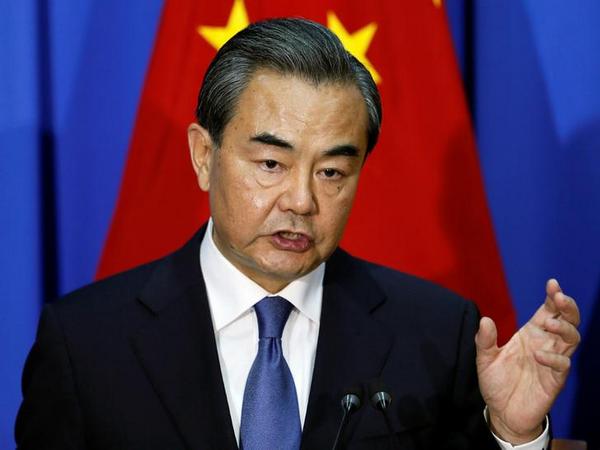New Delhi: Chinese Foreign Minister Wang Yi will arrive in New Delhi on Friday (August 12) to possibly firm up the agenda for the talks that are to take place between President Xi Jinping and Prime Minister Narendra Modi on the sidelines of this year’s G-20 Summit to be held in the resort town of Hangzhou.
Foreign Minister Wang Yi will be meeting his Indian counterpart Sushma Swaraj on Saturday (August 13).
The Ministry of External Affairs has described the visit as part of the regular high level dialogue between New Delhi and Beijing.
Foreign Minister Wang last visited India in June 2014. Both Foreign Ministers Wang Yi and Sushma Swaraj have been meeting regularly on the margins of multilateral meetings. Most recently, they had met in Moscow during the Russia-India-China trilateral meeting in April 2016.
During the visit, the two sides will discuss various issues of mutual interest, including the upcoming multilateral meetings viz., G-20 Summit being held in China and BRICS Summit being held in India.
However, according to a report in China’s state-owned Global Times, Foreign Minister Yi may also use his visit to New Delhi to acquire a perspective and an assessment of Prime Minister’s Modi’s prior visits to Vietnam and Laos before landing in Hangzhou for participation in the G-20, ASEAN-India and East Asia Summits, which could provide a greater insight into India’s “Look East-Act East” policy, as also New Delhi’s stand on the ongoing South China Sea (SCS) territorial dispute following the July 12, 2016 verdict of the international tribunal in favour of The Philippines.
According to the report, Beijing is viewing Prime Minister Modi’s visit to Vietnam rather closely, given that Hanoi is also a party in the SCS dispute and has also staked a maritime and rich energy resource claim to use of its waters.
Prime Minister Modi’s visit to Vietnam on September 2 and 3 to hold bilateral discussions with the Vietnamese leadership, including President Tr?n Ã?i Quang and Premier Nguy?n Xuân Phúcon, will be centered on boosting bilateral trade, energy cooperation, oil exploration, defence ties, as also discussions on regional issues of mutual interest to both nations, which could focus on concerns over reported Chinese aggression in the SCS, Prime Minister Modi’s visit to Japan in 2015 and his interaction with Premier Nguy?n Xuân Phúcon in Delhi.
Last year’s joint vision statement issued by India and the United States with regard to developments in the Asia-Pacific region could also figure in the talks in Hanoi.
As far as the territorial dispute related to the SCS is concerned, New Delhi has been a firm advocate of the “Right to Freedom of Navigation for all six countries located in its vicinity i.e. Brunei, China, Taiwan, Malaysia, The Philippines and Vietnam.
India could use this visit to Vietnam to state that China must consider not militarizing or blocking navigation on and through the South China Sea (SCS).
Interacting with media in New Delhi recently, Vietnam’s Ambassador to India Sin Thanh appreciated India’s position on the South China Sea dispute, and said, “We do not welcome any militarisation in the region but welcome constructive engagement by other countries to make situation peaceful.”
There are reports in the media that India could take the talks related to offering Vietnam Indo-Russian manufactured Brahmos cruise missiles and other military hardware such as T-54/55 tanks and Mi7/8 helicopters during Prime Minister Modi’s visit forward.
Government run Chinese media has said that India should not get entangled in the SCS dispute. (ANI)

